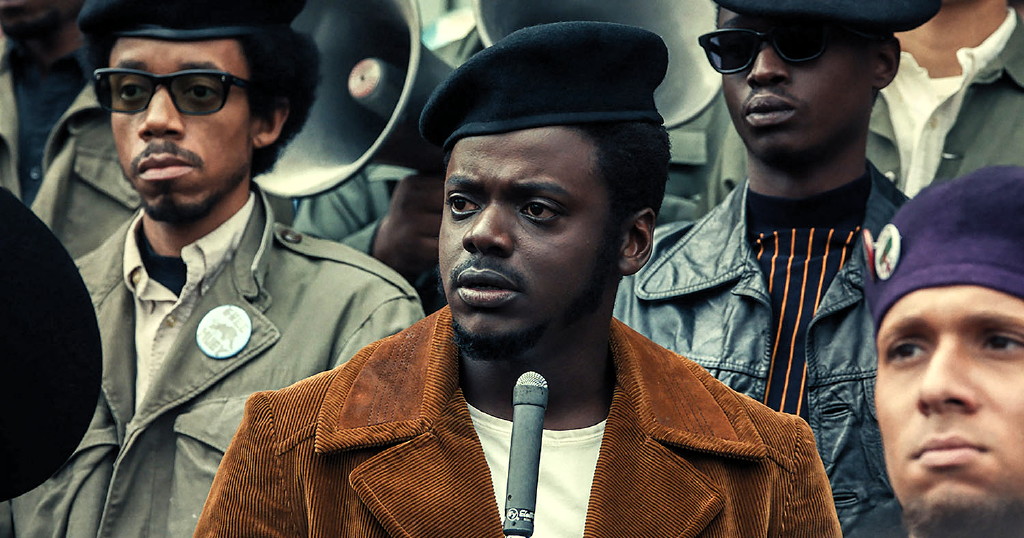By Paul Hall
Anywhere there’s people, there’s power. This is a philosophy that Fred Hampton (Daniel Kaluuya), the chairman of the Black Panther Party of Chicago, learns is truly applicable in the late 1960s. Hampton has found a way to meld together the power of political muscle with the physical strength of others in the community to create a formidable foe for the governing establishment in Judas and the Black Messiah.
The Chicago police, under the watch of Mayor Richard Daley, will do everything possible to put down the movement, but more interested in the powerful group that is forming is J. Edgar Hoover (Martin Sheen). Hoover views the Black Panther Party as a terrorist cell that preaches as much racial hatred as groups like the KKK. He pushes every person at his disposal to do their best to end the threat.
FBI agent Roy Mitchell (Jesse Plemons) has just the man to infiltrate the party: Bill O’Neal (LaKeith Stanfield). O’Neal gets caught trying to steal a car while impersonating an FBI officer and agrees to go undercover within the party to avoid his own charges. It is that decision that sends him deep within the inner circle of Fred Hampton’s organization. O’Neal does not comprehend it, but his actions will have a long-lasting impact on not only his life, but also on the lives of many individuals.
Hampton’s Panthers are trying to empower Black Chicagoans. His breakfast programs feed hundreds of children and he is actively educating the kids on things that make them unique. This uniting of the underprivileged scares the people in charge. And it’s that power struggle that will bring the movement to the crossroads that could change things forever.
Kaluuya is wonderful as Hampton. He displays the growth of a man who evolves from an individual with a simple goal of uniting a community to display political power, to a complex strategist who will use any means necessary to stand up to his oppression. The growth drives Kaluuya’s passionate and meaningful performance as he evolves from a state of quiet strength to an overt show of power, exclaiming “I am a revolutionary” alongside a throng of supporters.
Stanfield is perfect as the foil to Kaluuya. He knows when to give us a frightened child, an overwhelmed teen or a conflicted man. Stanfield’s performance is award-worthy simply for his ability to become his character. Stanfield’s ability to allow viewers feel his conflict, to expose us to the good and bad that live within Kaluuya’s Hampton, and to stand up to a man who doesn’t quite understand the monumental nature of his role in a changing society creates a performance that rises to a sensational level.
Judas and the Black Messiah is blessed with many stars in supporting roles, from Sheen and Plemons to the amazing Dominique Fishback as Deborah Johnson. Fishback excels in her portrayal of the woman who is strong enough to handle a confident man and the attention that comes with that. Women like Johnson are often the real power in any movement, and director Shaka King makes that obvious.
This is a film that will have detractors. Every movement has bad elements, and the Panthers were no exception. But truth can be found when you dig deeper and don’t stop at a singular explanation for anything. It is in listening to messages, learning from movements and finding common ground that we unite and become truly powerful.
Paul’s Grade: A-
Judas and the Black Messiah
Rated R
Stars: Daniel Kaluuya, LaKeith Stanfield, Jesse Plemons, Dominique Fishback
Director: Shaka King

